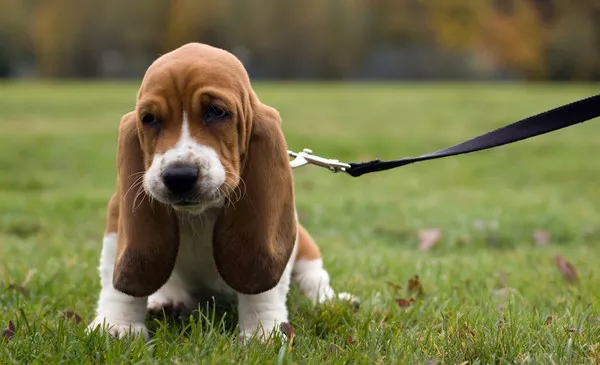Basset hounds are beloved for their endearing droopy ears, soulful eyes, and gentle disposition. Renowned for their friendly nature, these low-slung canines often find themselves as cherished members of families around the world. However, like any breed, basset hounds may exhibit behavioral issues, including aggression towards other dogs. In this comprehensive guide, we delve into the topic of basset hounds and aggression, exploring their general temperament, the importance of socialization, effective training techniques, behavioral signs to watch for, potential health issues, environmental influences, expert opinions, real-life case studies, problem-solving strategies, and additional resources for further support.
Breed Temperament:
Basset hounds are typically characterized by their friendly, easy-going temperament. With a history as hunting companions, they possess a calm and amiable demeanor that makes them well-suited for family life. Bred to work in packs, they generally exhibit good social skills and are often described as being excellent with children and other pets. Their laid-back attitude and affectionate nature make them popular choices for households seeking a companionable and low-key canine companion.
Socialization:
Socialization plays a crucial role in shaping a basset hound’s behavior towards other dogs. Early and ongoing exposure to various environments, people, and animals helps them develop confidence and positive associations. When socializing a basset hound with other dogs, it’s important to start at a young age and expose them to a variety of canine personalities, sizes, and breeds. Controlled interactions in safe environments, such as obedience classes or supervised playdates, can aid in fostering good manners and preventing aggression towards other dogs.
Training Techniques for Positive Interactions
Training is essential for shaping a basset hound’s behavior and promoting harmonious interactions with other dogs. Positive reinforcement techniques, such as using treats, praise, and toys, are effective in teaching desired behaviors and building a strong bond between the dog and its owner. Consistency, patience, and clear communication are key components of successful training. Additionally, teaching basic obedience commands like “sit,” “stay,” and “leave it” can help manage situations where potential conflicts with other dogs arise.
Behavioral Signs of Aggression
While basset hounds are generally known for their friendly disposition, it’s important for owners to be aware of potential signs of aggression. These may include growling, snarling, snapping, raised hackles, stiff body posture, and prolonged staring. These behaviors can indicate discomfort, fear, or stress in the dog and should be addressed promptly to prevent escalation. Understanding the underlying triggers and body language of a basset hound can help mitigate potential conflicts and ensure the safety of all involved.
Health Issues and Behavior Changes
Certain health issues can contribute to changes in behavior, including aggression, in basset hounds. Pain, discomfort, hormonal imbalances, and neurological conditions can all affect a dog’s temperament and social interactions. If a basset hound displays sudden or uncharacteristic aggression towards other dogs, it’s essential to rule out any underlying medical issues by consulting with a veterinarian. Addressing the root cause of the behavior can help effectively manage and resolve the aggression.
Environmental Influences and Management Practices
The environment in which a basset hound lives and the management practices employed by its owner can significantly influence its behavior towards other dogs. Providing a safe and enriching environment with opportunities for exercise, mental stimulation, and socialization is essential for a basset hound’s overall well-being. Additionally, implementing management strategies, such as using leashes, crates, and barriers, can help prevent conflicts and ensure the safety of both the dog and others.
Expert Opinions and Insights
Veterinarians, animal behaviorists, and experienced basset hound owners or breeders offer valuable insights into understanding and addressing aggression in basset hounds. According to Dr. Emily Smith, a veterinarian specializing in canine behavior, “Early socialization and positive reinforcement training are key components in preventing aggression towards other dogs in basset hounds.” Experienced basset hound breeder Sarah Johnson emphasizes the importance of breed-specific understanding, stating, “Basset hounds have a strong pack instinct, and proper socialization from an early age is crucial for fostering positive relationships with other dogs.”
Case Studies:
Real-life case studies provide valuable lessons and insights into managing aggression in basset hounds. One such example is Max, a basset hound rescued from a neglectful situation. Max initially displayed fear-based aggression towards other dogs due to lack of socialization and past trauma. Through patient training, gradual exposure, and positive reinforcement, Max learned to trust and interact peacefully with other dogs, demonstrating the transformative power of proper socialization and training.
Problem-Solving:
If a basset hound shows signs of aggression towards other dogs, it’s essential to address the issue promptly and effectively. Consultation with a veterinarian or animal behaviorist can help identify the underlying causes and develop a customized behavior modification plan. This plan may include desensitization and counterconditioning techniques, management strategies, and ongoing training to promote positive interactions and reduce aggressive behavior.
Resources for Further Support
For further reading and support on basset hound behavior and aggression, consider the following resources:
- “The Basset Hound Owner’s Survival Guide” by Diane Morgan
- “The Other End of the Leash: Why We Do What We Do Around Dogs” by Patricia McConnell
- American Kennel Club (AKC) Breed Club: Basset Hound Club of America
- Certified Professional Dog Trainer (CPDT) Directory: Find a qualified trainer in your area
- Local obedience classes and canine behaviorists specializing in aggression management
In conclusion, while basset hounds are generally friendly and good-natured dogs, aggression towards other dogs can occur in certain circumstances. By understanding the breed’s temperament, prioritizing socialization and training, recognizing behavioral signs, addressing potential health issues, managing the environment, seeking expert guidance, learning from real-life examples, and implementing problem-solving strategies, owners can effectively prevent and manage aggression in basset hounds, ensuring a harmonious relationship with other dogs and a happy, well-adjusted canine companion.
Related Topics:






















